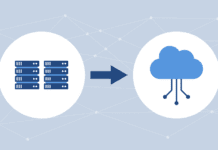EMC (NYSE: EMC) and HP (NYSE: HPQ) have their eye on the laptop and desktop protection market with new data storage offerings.
EMC has extended its Avamar enterprise data backup and deduplication software to cover laptops and desktops, while HP is rolling out a new offering aimed at protecting data on users’ personal computers.
The new lightweight clients for Windows and Mac are just some of the new features in the latest Avamar release. EMC said Avamar offers non-disruptive backups, and self-service recovery makes it easy for end users to restore data. The software — typically bundled with hardware as an appliance — can reduce network backup traffic by 99 percent by not saving the same data twice, EMC says.
Avamar also gets new Virtualizationsupport for VMware (NYSE: VMW) vSphere 4 through vCenter and vStorage integration. EMC has also boosted Avamar’s backup capacity by more than 60 percent and added new functionality to export deduplicated data to tape.
The Avamar Data Store Gen3 comes in one to 16 storage node configurations, with as much as 3.3 terabytes of capacity per node, for scalability up to 52.8TB of deduplicated capacity in a single grid.
The new Avamar Data Transport for Long-Term Storage slashes tape storage capacity needs while offering searchable file-level catalogs for rapid restores.
Rob Emsley, senior director of product marketing for EMC’s backup and recovery division, said Avamar is for customers who want to change their backup infrastructure, while the company’s Data Domain appliances are meant to fit into existing backup environments.
HP Protects PCs
HP, meanwhile, launched a solution for backing up and recovering data on notebook and desktop PCs.
HP Data Protector Notebook Extension costs $20 to $25 per client for a one-time license. It backs up data automatically each time a user changes, creates or receives a file. The data is then stored temporarily in a local repository until it is transferred to the network data vault for full backup and restore capabilities. Users can easily recover data themselves.
Deduplication, data encryption and compression boost security while reducing bandwidth and capacity demands. Besides client licenses, users need only a Windows store and a policy server, which can be run as a virtual machine.
HP isn’t offering Data Protector Notebook Extension as a service, but Billy Naples, worldwide product marketing manager for data protection, HP Software and Solutions, said the company has “service providers actively looking into this.”
Follow Enterprise Storage Forum on Twitter





